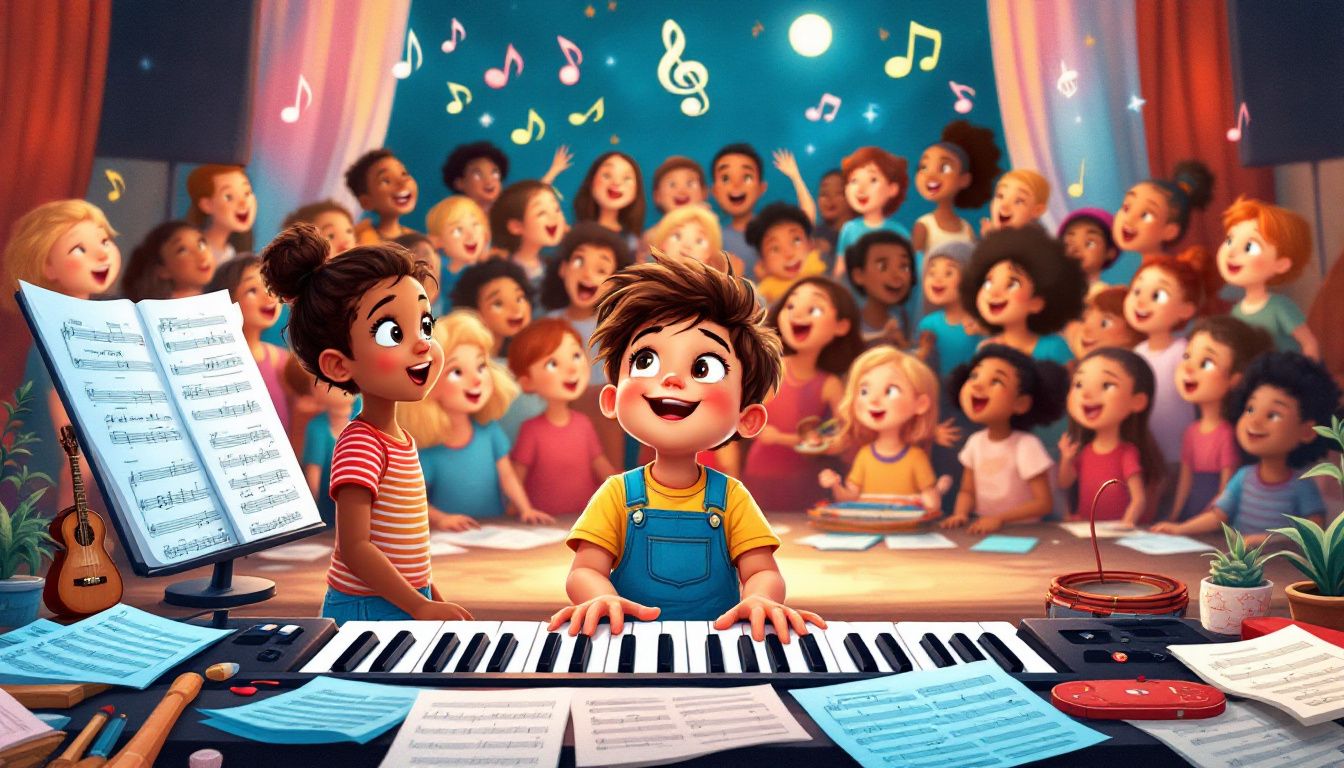
Why Group Music Learning Accelerates Your Child's Development
As parents, we're always looking for activities that will help our children thrive. While traditional one-on-one music lessons have their place, group music learning offers unique advantages that can significantly boost your child's development. Let's explore why learning music together makes such a powerful impact on young minds.
The Magic of Learning Together
Think back to your own childhood for a moment. Chances are some of your most memorable learning experiences happened when you were part of a group – whether it was solving problems with classmates or playing team sports. The same principle applies to music education, but with even greater benefits.
When children learn music together, they're not just learning notes and rhythms. They're developing crucial life skills through a natural, engaging process. Every group session becomes an opportunity for growth that goes far beyond music itself.
Key Benefits of Group Music Learning
1. Enhanced Social Skills Through Musical Interaction
Group music classes create natural opportunities for social interaction. When children play music together, they:
- Learn to take turns and share the spotlight
- Develop active listening skills
- Practice non-verbal communication
- Build empathy by staying in tune with others' emotions and musical expressions
2. Faster Learning Through Peer Motivation
There's something special about learning alongside others that speeds up the process:
- Children naturally observe and learn from their peers
- Friendly competition can inspire greater effort
- Group energy makes practice feel more like play
- Different perspectives help concepts click faster
3. Built-in Confidence Building
Group settings provide natural opportunities for building confidence:
- Small wins are celebrated by the whole group
- Performance anxiety decreases with regular group participation
- Children learn that mistakes are normal and manageable
- Success feels more achievable when shared with peers
4. Real-Time Feedback and Adaptation
In group settings, children receive multiple forms of feedback:
- Immediate musical feedback from playing with others
- Visual cues from peers and instructors
- Opportunities to both give and receive constructive comments
- Natural consequences that help develop musical intuition
The Brain Science Behind Group Music Learning
Recent research has shown that making music in groups creates unique patterns of brain activation that aren't seen in solo practice. When children play music together:
- Their brains synchronize in remarkable ways
- Social and musical processing centers light up simultaneously
- Stress levels decrease while feel-good hormones increase
- Neural networks for cooperation and communication strengthen
Practical Benefits for Today's Families
Group music learning offers several practical advantages:
- Children stay more motivated when learning with peers
- Practice feels more like play and less like work
- Social connections make commitment easier
- Skills transfer naturally to other group settings
How to Support Your Child's Group Music Journey
Here are some ways you can enhance your child's group music learning experience:
At Home:
- Ask about their musical collaborations
- Encourage them to share what they've learned
- Create opportunities for informal music-making with family
- Celebrate both individual and group achievements
In Their Musical Community:
- Support participation in group performances
- Help them practice any collaborative pieces
- Encourage friendships with musical peers
- Attend group events when possible
The Long-Term Impact
The benefits of group music learning extend far beyond childhood:
- Improved teamwork skills for future academic and professional settings
- Stronger social confidence and communication abilities
- Enhanced ability to collaborate and innovate with others
- Lasting appreciation for the power of working together
Making the Right Choice for Your Child
When considering music education options, look for programs that:
- Balance individual growth with group learning
- Create opportunities for collaboration
- Foster a supportive community environment
- Make learning fun and engaging through group activities
The Path Forward
Group music learning isn't just about becoming a better musician – it's about becoming a more well-rounded person. In today's increasingly connected world, the ability to work well with others is more important than ever. By choosing group music learning for your child, you're investing in both their musical future and their overall development.
Remember, every child's musical journey is unique, but the benefits of learning together are universal. Whether your child dreams of performing on stage or simply wants to enjoy making music with friends, group learning can help them get there faster while developing essential life skills along the way.
